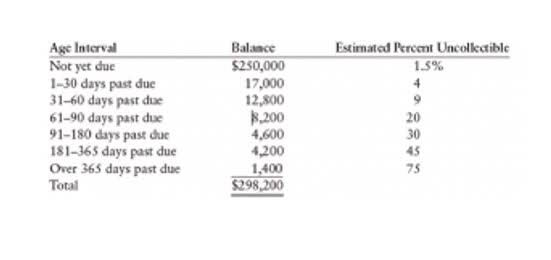What Is Accounting? Definition and Basics, Explained

It’s not only important for businesses in terms of record keeping and general business management, but also for legal reasons and tax purposes. Though many businesses leave their accounting to the pros, it’s wise to understand the basics of accounting if you’re running a business. To help, we’ll detail everything you need to know about the basics of accounting.
Accrual Accounting Method
The reports generated by various streams of accounting, such as cost accounting and managerial accounting, are invaluable in helping management make informed business decisions. Journal is the first book of original entry in which all transactions are recorded event-wise and date-wise and presents a historical record of all monetary transactions. https://www.bookstime.com/ It may further be divided into sub-journals as well which are also known subsidiary books. Accounting information is not without personal influence or bias of the accountant.

Financial Statement Analysis for Beginners

It is essential for companies to properly record their company’s books. According to the Internal Revenue Service (IRS), businesses that generate an average gross receipt worth more than $25 million in the last three years cannot use the cash accounting method. With the cash accounting method, a sale is recorded at the point you receive payment, and an expense is recorded at the point when you pay the bill. Cash accounting is a relatively simple and straightforward accounting method that records cash inflow and cash outflow, that is when cash is spent or recovered. FASB also involves itself in educating others about how best to use its standards.
Professional qualifications
- Bookkeeping focuses on recording and organizing financial data, including tasks, such as invoicing, billing, payroll and reconciling transactions.
- In addition to this financial overview, proper accounting practices prepare your business to file taxes and produce financial statements needed for potential investors or business loan applications.
- It does not matter when the business gets billed or pays for the transaction initiated.
- For instance, inventory should be valued on the basis of ‘least of the cost and market price’ as per the principle of conservatism.
- GAAP defines accounting terms, assumptions and methods and sets policy for a wide array of topics, from assets and liabilities to foreign currency and financial statement presentation.
Working capital refers to the difference between a company’s current assets and current liabilities. It is essential for a firm to maintain an optimal balance of working capital, as it indicates the company’s ability to meet its short-term financial obligations. Standardized accounting principles date back to the advent of double-entry bookkeeping in the 15th and 16th centuries, which introduced a T-ledger with matched entries for assets and liabilities. Recording pertains to writing down or keeping records of business transactions. Once they are classified, information is summarized into reports which we call financial statements. Accounting helps you gauge where your small business stands financially, what it can afford at any given time, and where its money is coming from and going.
What is Credit Cards? Types, Advantages, Disadvantages, Features
Accountants can also work for themselves, setting up their own small business and freelancing their services out. There are no legal requirements or tests you must pass to call yourself an accountant, but ideally you would have an accounting degree from a recognized institution, and some work experience. Whereas you might only periodically consult your accountant, a bookkeeper touches base more frequently and handles daily accounting tasks. Regardless of who you hire, knowing basic accounting principles can help you understand your business better and have more productive conversations with accounting def your financial team.

What are the different types of accountants?
- The matching principle helps businesses to match and balance their revenues and expenses.
- The accrual accounting method requires companies to match and record their revenues and expenses at the time of sale.
- This is the practice of recording and reporting financial transactions and cash flows.
- For a breakdown on the differences between an accountant and a CPA, check out “Is a CPA the Same as an Accountant?
- If a logistics company receives $10,000 for delivering packages to another company on May 1, the sale will be recorded to have taken place on the 1st of May.
- Cash inflow occurs when the company sells investment and receives cash for it.
Although businesses assign accountants to handle their accounting load, it is a good practice for business owners to be aware of accounting basics. By analyzing these three sections, stakeholders can gain insight into the company’s cash flow management and its ability to meet short-term and long-term financial obligations. If companies were able to pick and choose what information to disclose, it would be extremely unhelpful for investors. At the end of all the lessons is a summary and a quiz to test your understanding of the topics discussed. Real accounts are permanent accounts, they are recorded in the balance sheet and are not closed at the end of an accounting year. Using one of the examples above, it is not enough to record that the company paid salaries for April.
- Nominal accounts are considered to be temporary, they are reflected on a company’s income statement as net profit or loss, and are closed at the end of every fiscal year.
- Most business owners opt for small-business accounting software to help automate the process and reduce the likelihood of error.
- Accounting involves tracking and reporting all the business financial activities.
- Enron exploited accounting loopholes of the period to book assets as profit without it having any actual value.
- We are surrounded by business – from managing our own money to seeing profit statements of big corporations.
One difference between the two types of accounting methods is who uses them. Accrual accounting is used by companies while cash accounting is used by individuals. If a logistics company receives $10,000 for delivering packages to another company on May 1, the sale will be recorded to have taken place on the 1st of May. The other company may have placed their order on April 12, but it does not count in the cash accounting method on that date. GAAP helps govern the accounting world by setting general rules and guidelines applicable to all. It focuses on topics like balance sheet classification, materiality, and revenue recognition.

- Even if you are not an accounting expert, the software has built-in step-by-step guides to show you how to do your month and year-end processing.
- Businesses of all sizes use accounting to remain legally compliant and measure and assess their financial health.
- In most other countries, a set of standards governed by the International Accounting Standards Board named the International Financial Reporting Standards (IFRS) is used.
- When retained earnings (RE) are positive, they increase the organization’s equity.
A company needs to record the acquisition price of any item it spends money on to enable it to properly record the depreciation of these items. Liabilities refer to all the https://www.instagram.com/bookstime_inc financial obligations that a company owes to external parties. Companies that have fewer liabilities compared to their assets attract investors. Other items to pay attention to on the liabilities side of the balance sheet are accounts payable, short-term debts, and long-term debts. The income statement is a type of financial statement that highlights the company’s revenues, gains, expenses, and losses over a timeframe. It is the best representation of the complexities on the balance sheet.
It must include monetary figures – say for example, $20,000 salaries expense. The preparation of such summarized financial statements is frequently the ultimate aim of keeping records and classifying them. Accounting requires meticulous record-keeping and financial transaction tracking year-round. Moreover, keeping accurate records helps ensure your business is prepared to file taxes, present information to investors or even apply for a loan.